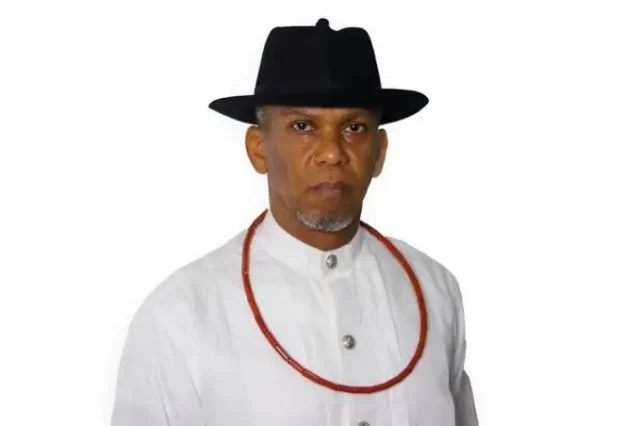By Francis Ewherido
The age for admission of students into Nigerian universities and other tertiary institutions is becoming an unending conundrum with no immediate end in sight. With heightened emotions and personal interest, it gets even more interesting and complicated. Last Tuesday in the heavy rain, a group of concerned parents under the banner of The Movement Against JAMB Injustice stormed the JAMB office in Lagos to protest against JAMB for the age limit policy describing it as unconstitutional and discriminatory. The crux of the matter is not necessary the 16-year-entry limit, but when it should be applied. The spokesman of the group, Olusegun Steven, cited the case of a candidate who scored 315 and is meant to study architecture in a private university but she was denied the opportunity to upload her results due to age.
“Why should JAMB unilaterally choose a cutoff mark for students below 16 years old by September 30th and not December,” their spokesman queried. Those whose children stand to benefit from an extended period are even urging the federal government to immediately review the policy and allow candidates who turn 16 before the end of the 2025/2026 academic session to be admitted into Nigerian universities and other institutions.
The age of admission problem flared up when the former Minister of Education, Prof Tahir Mamman, issued a directive that admission to tertiary institutions should not be given to candidates less than 18 years. The minister said that the 18-year-old benchmark is in line with the 6-3-3-4 system of education. I was one of those against the directive of the minister.
My argument was that since the 18 year old entry limit had gone without implementation for many decades, the National University Commission, JAMB and other bodies need to give people some years before the implementation because immediate implementation was going to cause unprecedented disruption in the school system. The controversy dogged the tenure of the minister until he was removed.
The government reversed the pronouncement of the minister to 16 years as entry limit for fresh students to tertiary institutions. The reversal was welcomed by some while others sided with the former minister. I was fine with the 16 years. In the early 80s, when we went into the university, some of our contemporaries were just 16 years and they showed enough knowledge and maturity to be in the university. At the University of Nigeria, Nsukka, which I attended, the 16 years age limit was strictly enforced. University of Ife (now Obafemi Awolowo University) admitted students who were 15. I met a few of them later in life.
This current controversy started when some people, I included, argued further that exceptionally gifted students under 16 should admitted as is done abroad. The government acceded. Consequently, JAMB announced that it would screen more than 500 exceptional candidates under the age of 16 who are seeking admission into tertiary institutions for the 2025/2026 academic session. The screening is scheduled is for Sept. 22 to 26 across three centre. Giving a breakdown of candidates to be screened, the Registrar of JAMB Prof Ishaq Oloyede, said: Lagos, 397; Owerri 136. and Abuja, 66.
The bone of contention now is the 320 cutoff mark for the “specially gifted candidates.” Those who participated in the demonstration are likely parents whose children scored very high marks, but below the 320 cutoff mark like the candidate who scored 315 but was denied admission because she scored less than 320. With that high score, she would still have got the admission in normal circumstances, but she doesn’t turn 16 by September 2025 and JAMB says only students who turn 16 by September can get admission.
JAMB rightly argued “People have been doing it (give special treatment to exceptionally gifted pupils) in other parts of the world. We are not reinventing the wheel.” The board stated that the initiative sought to balance academic excellence with cognitive maturity, discourage age falsification, and protect children from excessive parental pressure. Beyond scoring at least 320 in UTME, the candidate should score 80 per cent in post-UTME, and 80 per cent (24/30 points) in a single WAEC or NECO sitting to be considered. Policy shuts the door on about the 599 candidates who scored above 300 in the 2025 UTME but fell below the official minimum admission age of 16. I learnt parents of the affected students have gone to court which means the matter is subjudice. The court decide will decide where the pendulum swings.
Meanwhile, I just want to say this to both parties. I want reiterate that whatever the government (JAMB and the ministry) decide should have the best interest and well-being of the students in mind. It is not enough to make to make policies in line with what is done “in other parts of the world.” We have to do things to suit our circumstances and for the benefit of the students and the larger society.
For the parents, what is driving them to go to this extra mile? Is it sole in the interest of their children or they just want to rush their children through the university? Being the first to get off the starting block doesn’t necessarily mean you will finish the race in the first position. Every child is created differently with peculiar characters, gifts, talents and other traits. It is important that parents take time to understand each child and parent them to suit their peculiar circumstances. Some of my children started their university at 16, while others started at a later age. I didn’t push any of them. I only guide. Having taken time to study each of them, my interest is what suits their peculiar nature.
Some parents handle their children’s education as if they are in competition with one another or with their peers or other parents. I do not believe in that. Life is an individual race. Let each child run his/her race. What is important is balance in all aspects of life.
Another major issue is that in 2025, some parents still decide for the children what to study in the university. How can you say, for instance, that your child should study law or medicine so that he can inherit your chamber or practice? Decisions such as the course your child should study, the school he should attend and whether in Nigeria or abroad (for parents who have the financial resources) should have the sole interest of the children in mind. The GenZ don’t have your time o! They have their own minds. You better support them in their journey of self-discovery so that they can find their purpose in life. Guide, not dictate, to them. If not, you are going to have children who are depressed and unfulfilled or have completely derailed. There are many of them in Nigeria, the UK and Canada.
Some men in their 60s to 80s are living in disappointment because the children are not interested in what their parents spent their lives building and accumulating. They sell the properties they inherited and relocate abroad. My take in all these is live your life and allow your children to live theirs. You can’t live their lives for them.






















